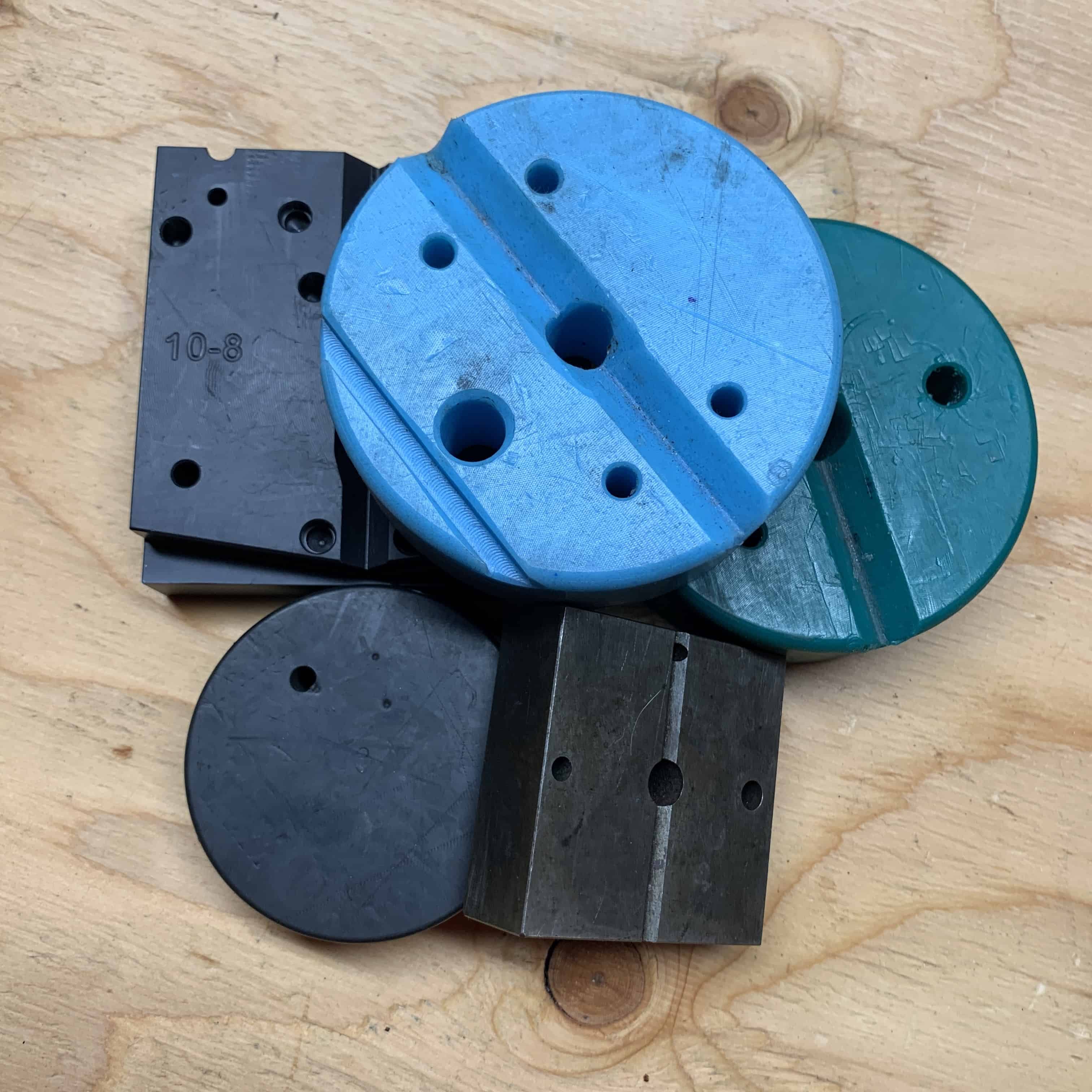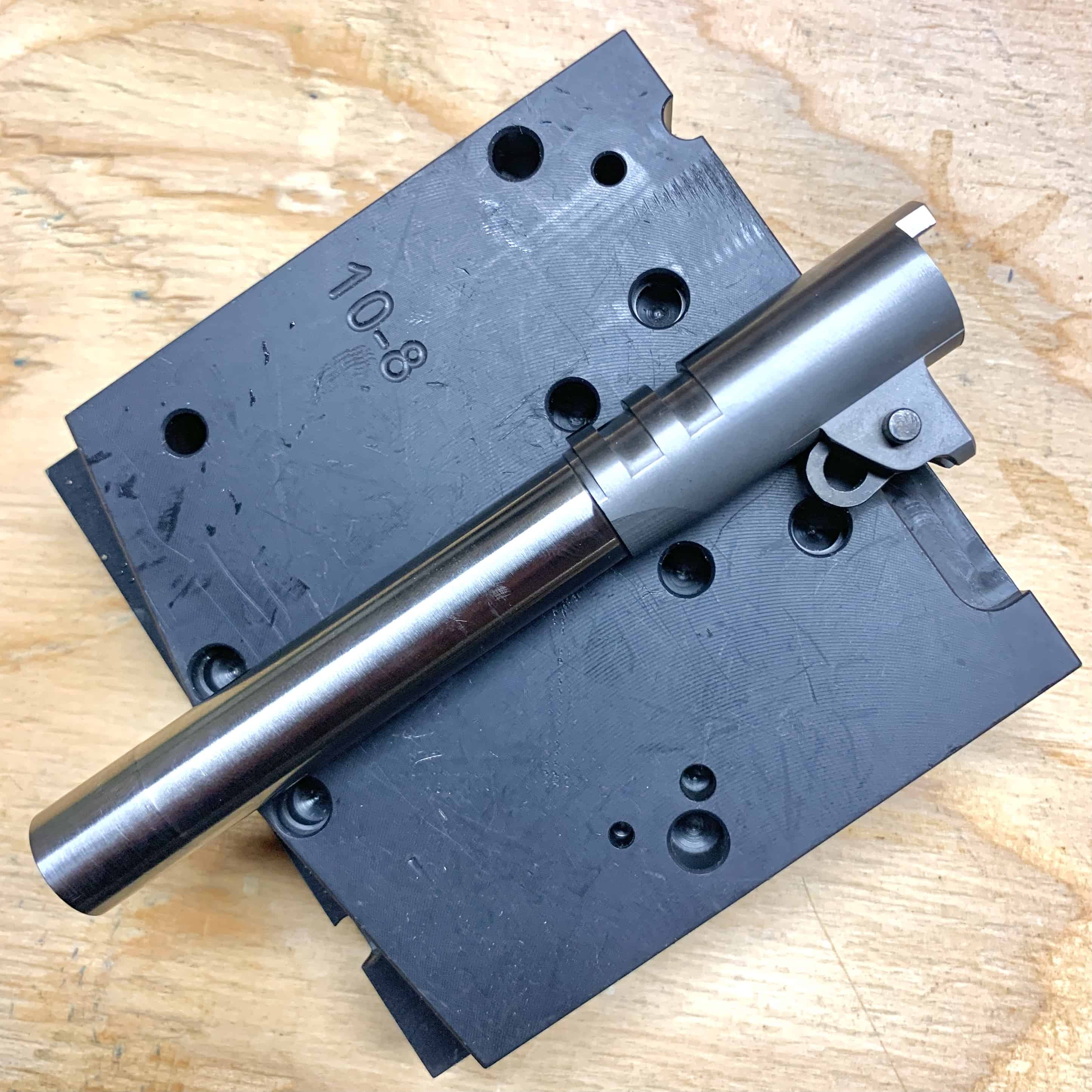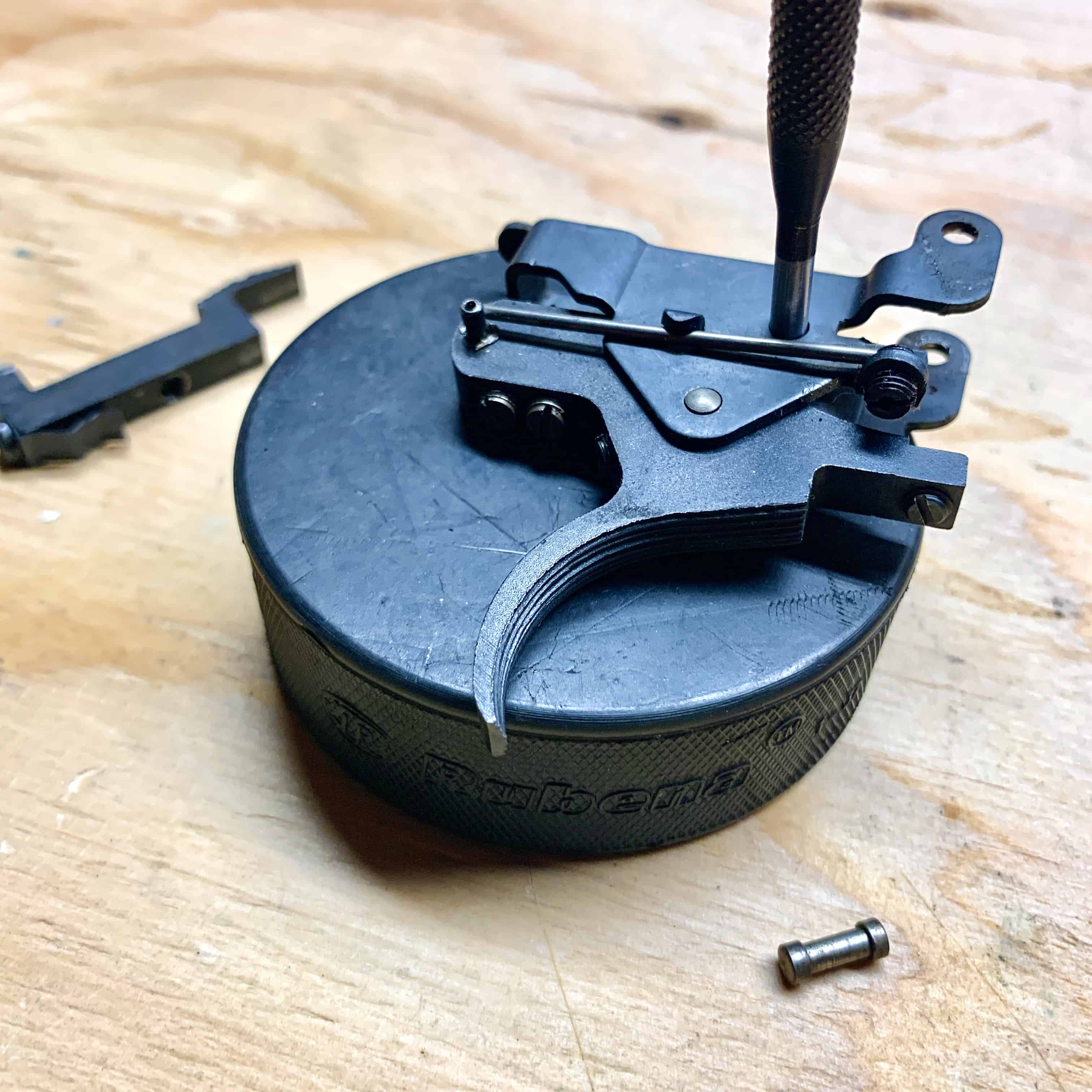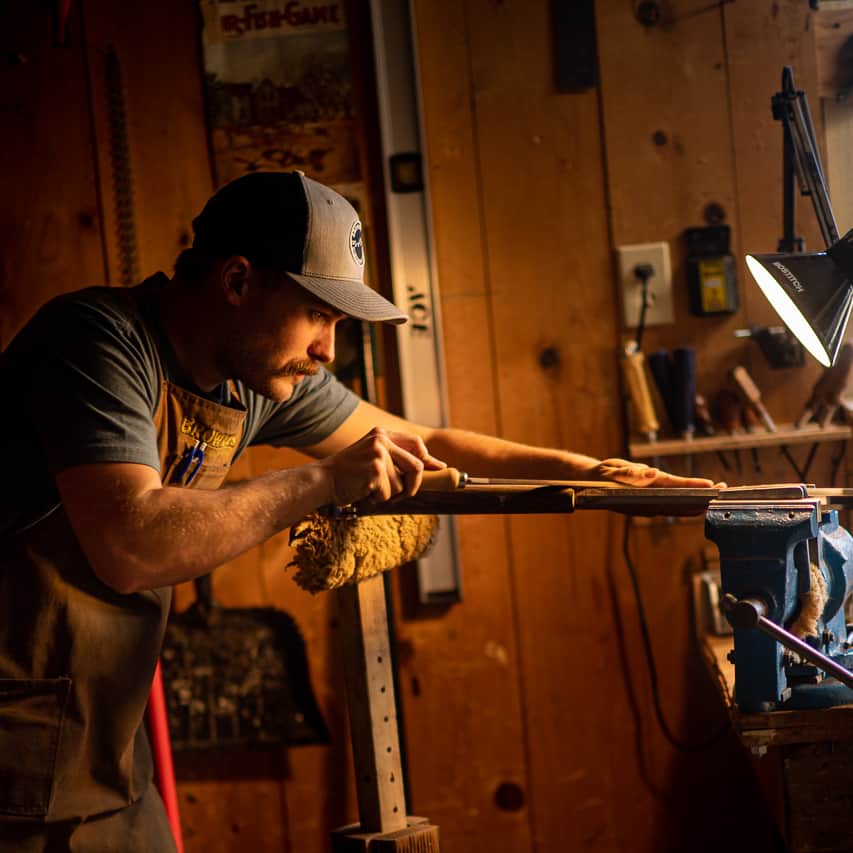
Whether you’re a hunter or a recreational shooter, having a setup at home to allow you to maintain your firearms is critical. Specialized tools cost a lot, add up quickly, and sometimes turn you away from the idea. Fortunately, the bench block isn’t one of those expensive tools and can be made at home.
The bench block is one of the most essential tools for any gunsmith’s bench. Fortunately, it is far from expensive, and you can make your own bench block for a couple of dollars. Using a hockey puck, you can drill and machine it to fit your individual needs.
I use a combination of bench blocks every day and can’t imagine working on a gun without them now. Let’s explore the very underrated piece of equipment: the bench block.
Affiliate Disclosure: This article may contain affiliate links. When you use these links, I earn a small commission from each sale generated at no cost to you. This commission helps me continue to put out free content. I work a full-time job that I am very happy with; therefore, I don’t need this commission and am not obligated to speak highly of any product. Everything written is my own opinion: the good, the bad, and the ugly.
The Bench Block
A bench block is an essential tool for the gun owner. It supports your work when punching out pins during firearm assembly and disassembly. I have many of these blocks on my workbench; some have special functions, while others are for general use.
What Makes a Good Gunsmithing Bench Block?
A bench block needs to be nonmarring. Meaning that it won’t scratch or dent your firearm when you are working on it. It also needs to have various holes in various places to punch pins out through the block. Some will even have blind holes to capture small pins after being punched out. Lastly, It should have some sort of channel to keep round objects from rolling off.
What are Bench Blocks Made of?
Bench blocks are made of many different materials, including; steel, brass, aluminum, plastics, synthetics, and even wood. Each of these different materials serves a different purpose, and one or another might not fit your needs.
For gunsmithing, most bench blocks will be made out of some sort of plastic or synthetic, as that is the least likely to damage the parts you are working on. While brass and aluminum might work in some cases, it is not ideal as they can leave marks or smears that need to be cleaned off. I do use a steel bench block, but I don’t recommend it for home use. My steel bench block is mostly used for fitting parts and fixing screw heads that will be refinished.
Use coupon code KTG10 to get 10% off your order of $150 or more at Brownells.
A quick search on Brownells.com will show you the different styles and variations of bench blocks that are available, giving you some ideas. Below are a few of the ones they offer. Look at each of their features to get an idea of what kind of channels and holes are the most useful if you choose to make your own.
- Extra Large Pistol Bench Block–Great for working on handguns
- Extra Large Rifle Bench Block–Good general use bench block
- AR-15 Front Sight Bench Block–Ideal for Drifting out the gas block pins
- 1911 Armorers Block–A necessity for anyone who plans on building or working on 1911s

Make Your Own Bench Block
Making your own block might be the best option if you are looking to outfit your home bench on a budget or the market doesn’t quite have what you need. As mentioned before, I have many bench blocks that all serve their purpose. Many of those blocks I’ve made myself. Here’s how:
Materials:
Hockey Pucks are the best and most cost-effective way to make your own bench block. At a whopping $4 apiece, they make an excellent addition to your bench. They are made of a non-marring material that is easy to machine to what you need.
As mentioned before, Wood can be used but is only temporary as it tends to get worn and chipped away rather quickly. Metals such as steel, brass, and aluminum work well when applied correctly. However, I have not found anything better than the hockey pucks I mentioned above for general use.

Machining:
Making them fit your needs is as easy or complicated as you want it to be. A drill press or electric drill will accomplish most of what you need, but the sky is the limit if you have access to a milling machine. If limited to a drill press, the lengthwise channel can be made by clamping two pucks together in a vise and drilling a hole through the center of both.
Designs:
As I mentioned previously, look at some of the examples I provided to get ideas of how you want to make your bench block. The most useful bench blocks have multiple holes of various sizes and a longer channel that runs across the block to help stabilize a barrel or other round object. Of the holes drilled throughout the block, I like to have one or two that do not go the whole way through the block, helping capture the small pins once driven out.
I always have one or two plain hockey pucks lying on my bench. These are used for any specialized need, allowing me to modify them when needed. One that I frequently use at work has a short alignment pin epoxied in place to aid in assembling set triggers.

Application
I use a bench block for almost every firearm disassembly that I do. When I’m not driving pins out, I use them to help stabilize the piece while working on small parts. They are a universal tool that is ranks up there with a good vise. They are very underrated on the bench of the DIY-oriented person.
To find more Home Gunsmithing tips click here!

Written by: Kurt Martonik
Kurt is a Gunsmith, Reloader, Hunter, and Outdoorsman. He grew up in Elk County, Pennsylvania, where he became obsessed with the world of firearms. Following high school, Kurt enlisted in the United States Air Force as a Boom Operator, where he eventually rose to the position of Instructor. After his military service, he attended the Colorado School of Trades(CST) in Lakewood, CO for gunsmithing. Following graduation, he accepted a job at C. Sharps Arms in Montana, where he worked as a full time stockmaker and gunsmith.
A hockey puck! What an awesome idea! I’ll have to buy a couple